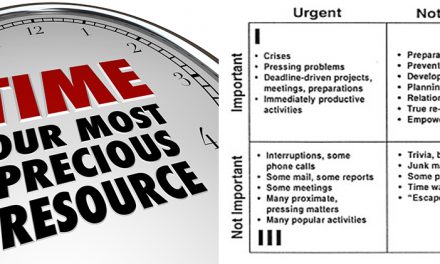When emotional intelligence was first talked about and presented to the masses, it served as the missing link in a peculiar finding: people with average IQs outperform those with the highest IQs 70% of the time. This research and the data it produced challenged what many people had always assumed was the sole source of success – IQ.
Decades of research now point to emotional intelligence as the main factor that sets star performers apart from the rest of the pack.
Emotional intelligence is the “something” in each of us that is a bit intangible. That ‘thing’ you can’t quite put your finger on. It affects how we behave, navigate social complexities, and make personal decisions that achieve positive results. Emotional intelligence is made up of four core skills that fall into two main brackets: personal competence and social competence.
Personal competence is
your self-awareness and self-management skills, which is more about you individually rather than how you interact with other people. It’s your ability to stay aware of your emotions and manage your behavior and how you tend to act on a daily basis.
- Self-Awareness is your ability to accurately perceive your emotions and stay aware of them as they happen.
- Self-Management is your ability to use awareness of your emotions to stay flexible and positively direct your behavior.
Social competence
is made up of your social awareness and relationship management skills; social competence is your ability to understand other people’s moods, behavior, and what motivates them in order to respond in such a way that the outcome is positive for all parties concerned and improve the quality of your relationships on a consistent level across all aspects of your life.
- Social Awareness is your ability to accurately pick up on emotions in other people and understand what is really going on.
- Relationship Management is your ability to use the awareness of your emotions and the emotions of others to provide the desired result of an interaction successfully.
Emotional Intelligence, IQ, and Personality are different, very different, although they are often thrown into the same basket and intertwined.
Emotional intelligence taps into a fundamental element of human behavior that is different from your intellect. There is no known connection between IQ and emotional intelligence; you simply can’t predict emotional intelligence based on how smart someone is. Ever wonder why some of the ‘smartest’ people you know lack what’s called ‘common sense’?
Intelligence is your ability to learn, and it’s the same at age 15 as it is at age 50. Which sounds crazy but is true.
Emotional intelligence, on the other hand, is a flexible set of skills that can be acquired and improved with practice, repetition and evaluation.
Although some people are naturally more emotionally intelligent than others, you can develop high emotional intelligence even if you aren’t born with it.
Personality is the final piece of the human psyche. It’s the individual “style” that defines each of us. Personality is the result of hard-wired preferences, such as the inclination to be introverted or extroverted. However, like IQ, personality can’t be used to predict emotional intelligence. Also like IQ, personality is stable over a lifetime and doesn’t change. So now the saying ‘a leopard never changes its spots’, hopefully makes more sense. IQ, emotional intelligence and personality each cover unique ground and help to explain what makes a person tick.
Emotional Intelligence CAN Predict Performance.
How much of an impact does emotional intelligence have on your professional success? The short answer is: a lot! It’s a powerful way to focus your energy in one direction with a tremendous result.
Many studies around this have been conducted with many testing emotional intelligence alongside at least 33 other important workplace skills, and found that emotional intelligence is the strongest predictor of performance, explaining a full 58% of success in all types of jobs.
Your emotional intelligence is the foundation for many critical skills—it impacts almost everything you do and say every day.
Of all the people studied at work, it has been found that 90% of top performers are also high in emotional intelligence. On the flip side, just 20% of bottom performers are high in emotional intelligence. You can be a top performer without emotional intelligence, but the chances are slim.
Naturally, people with a high degree of emotional intelligence make more money – an average of around £20-30,000 more per year than people with a low degree of emotional intelligence. The link between emotional intelligence and earnings is so direct that every point increase in emotional intelligence adds £1000 to an annual salary. This appears to be true for people in all industries, at all levels, in every region of the world. Studies haven’t yet been able to find a job in which performance and pay aren’t tied closely to emotional intelligence.
Good news, You CAN Increase Your Emotional Intelligence, fortunately for those of you that take the time to understand this subject and act upon it, the future is bright. Yet another opportunity for you to take advantage of and springboard your success.
So how? Let’s look at the science behind the points I’ve raised, don’t worry I won’t go too deep……..
The communication between your emotional and rational “brains” is the physical source of emotional intelligence. The pathway for emotional intelligence starts in the brain, at the spinal cord. Your primary senses enter here and must travel to the front of your brain before you can think rationally about any experience, good or bad. However, first they travel through the limbic system, the place where emotions are generated. So, we have an emotional reaction to events before our rational mind is able to engage. Emotional intelligence requires effective communication between the rational and emotional centers of the brain.
Plasticity is the term neurologists use to describe the brain’s ability to change. As you discover and practice new emotional intelligence skills, the billions of microscopic neurons lining the road between the rational and emotional centers of your brain branch off small “arms” (a bit like a tree) to reach out to the other cells. A single cell can grow 15,000 connections with its neighbors. This chain reaction of growth ensures it’s easier to kick a new behavior into action in the future.
As you train your brain by repeatedly practicing new emotionally intelligent behaviors, your brain builds the pathways needed to make them into habits. Before long, you begin responding to your surroundings with emotional intelligence without even having to think about it. And just as your brain reinforces the use of new behaviors, the connections supporting old, destructive behaviors will die off as you learn to limit your use of them.
So, in summary your emotional intelligence is well within your reach of change for the better. With thought, practice and persistence you can train your brain to be leaner, meaner and more effective by deploying good habitual trades.
How could you get into a good habit today to streamline your thinking?
How well do you control your emotive reactions in a situation to reduce a possible destructive outcome?




